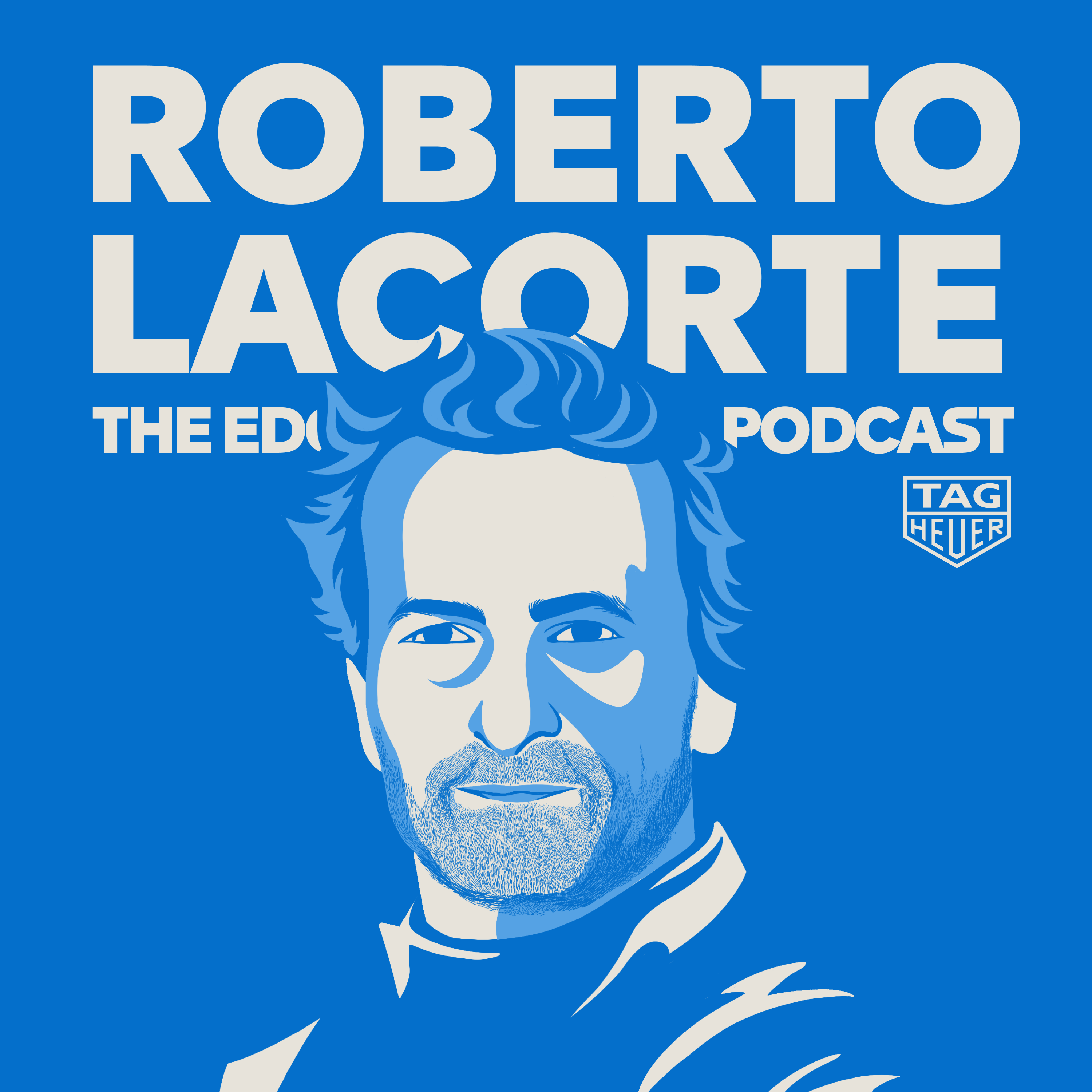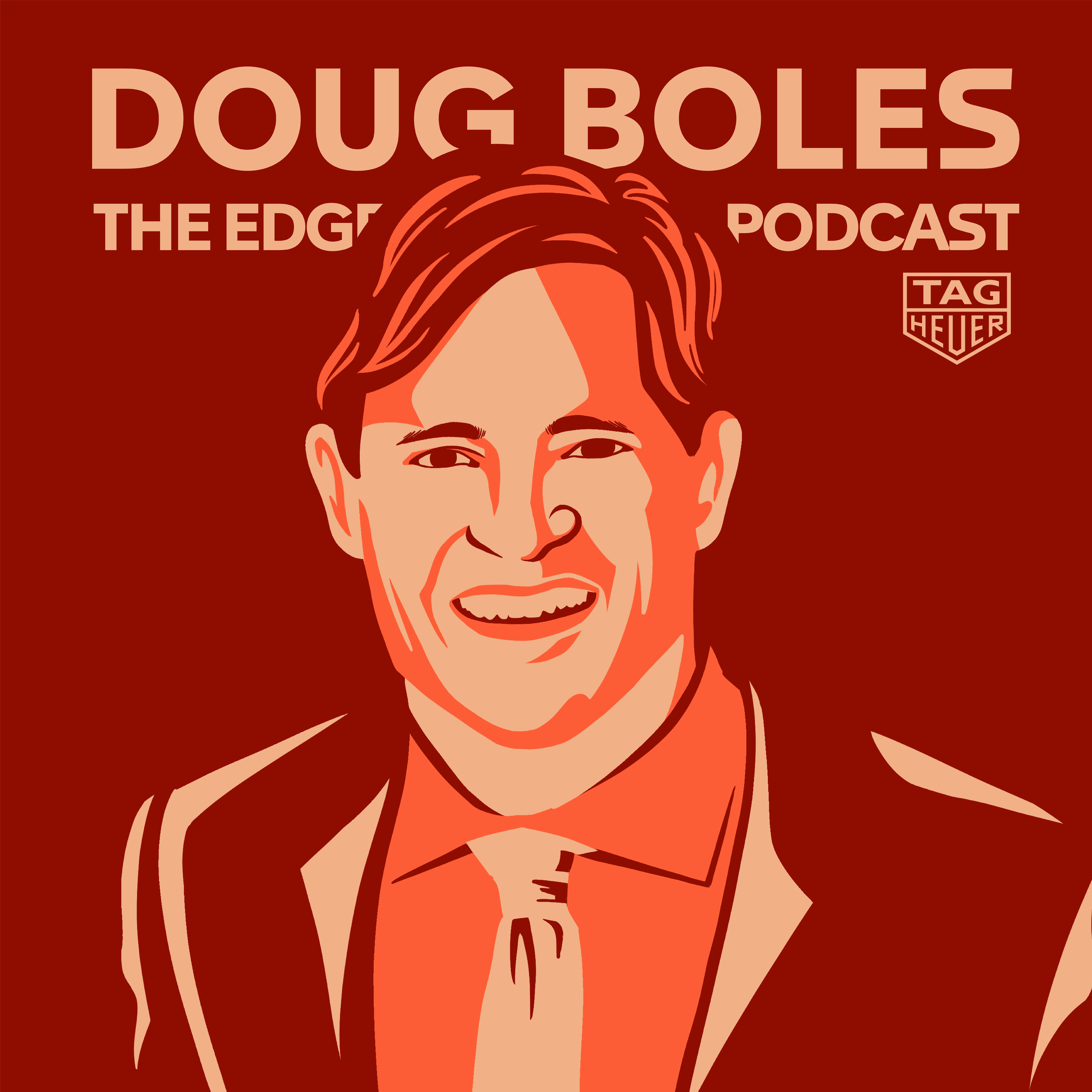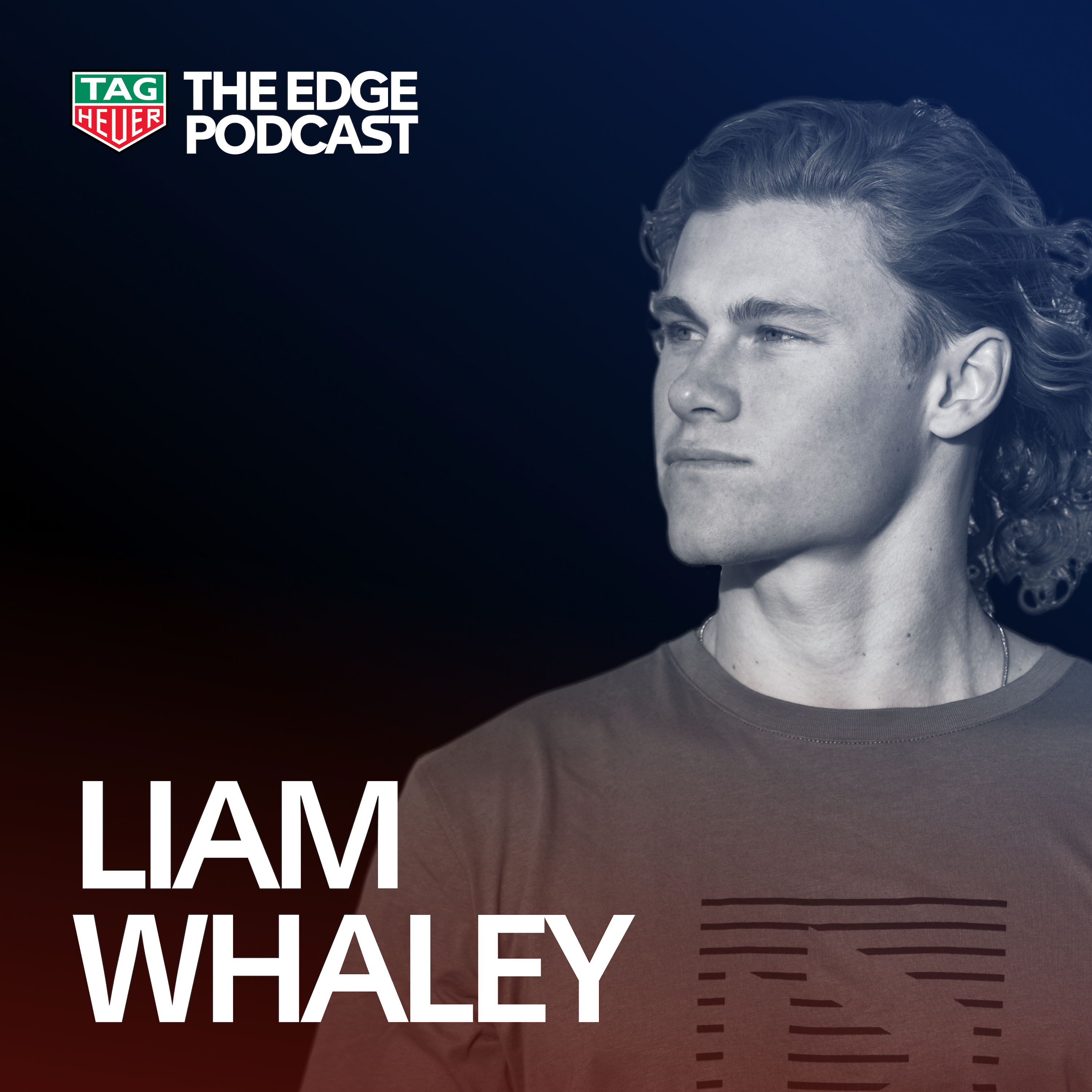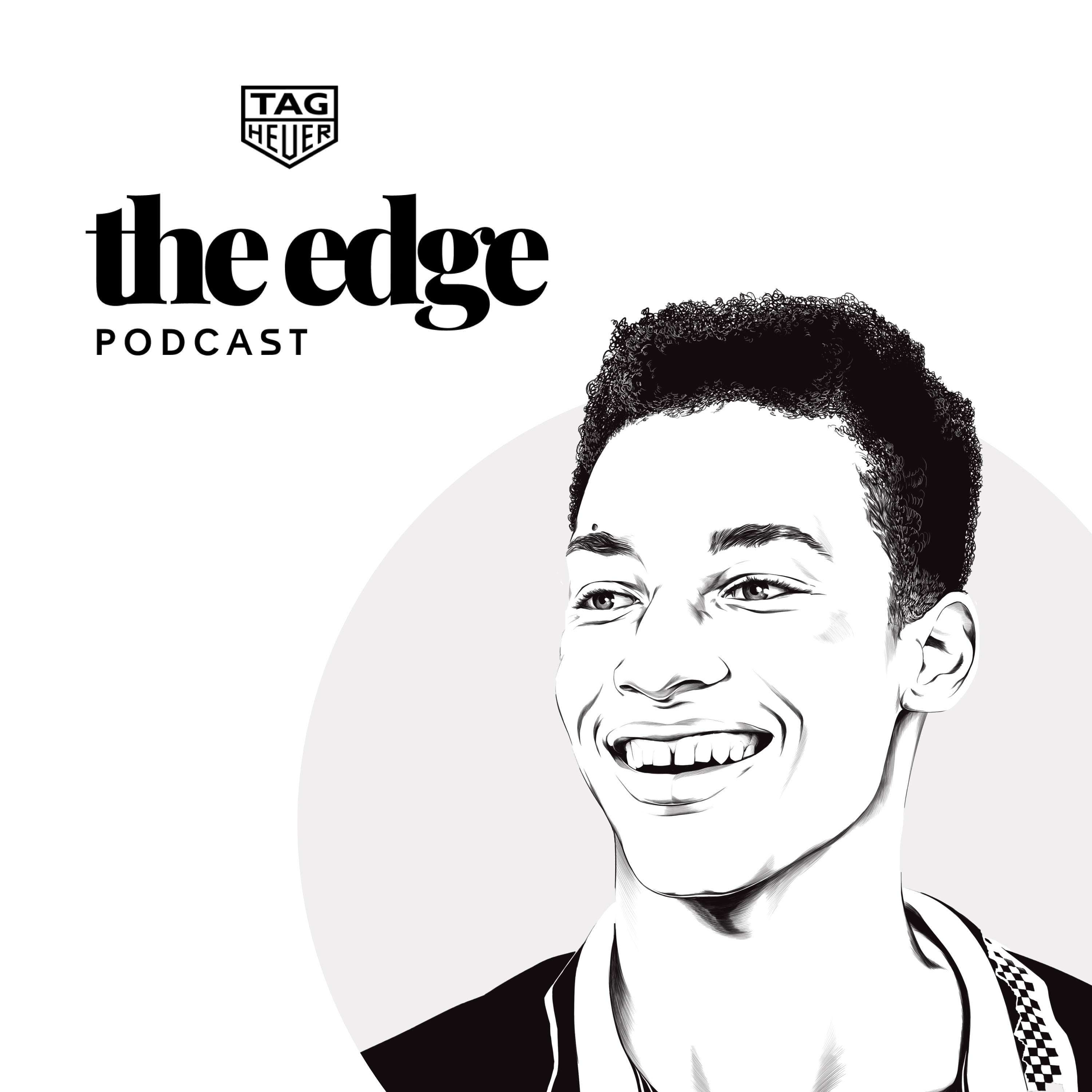Episode Transcript
Speaker 1 00:00:02 Racing driver, sailor, entrepreneur, Roberto LaCorte is a man of many talents. Whether he's behind the wheel of a race car or at the helm of a sailing boat, Roberto is constantly pushing himself and his team to the very edge of possibility. In this episode, Roberto discusses flying Nika, his ambitious sailing project that seeks to break records and make waves. He also talks about his late start to motorsport, what the future holds for sailing and flying Nico's collaboration with Tag Hoya. I'm Te Vanden Brer. Welcome to the Edge, A podcast by Tag Hoya.
Speaker 3 00:00:42 I started sailing with, uh, my father when I was, uh, very, very young. I don't remember. For me, sailing is a something that is part of me.
Speaker 3 00:00:59 The Project Thata is, uh, we can say that is a vision, is a vision to feed my, my intention to do something new. I remember the moment where I realized that, uh, that the direction was, uh, the right direction was a new, completely new water, uh, to a new innovative direction, completely different from, uh, the previous experience. I remember meeting with, uh, uh, with the, the, the design team, they proposed me an upgrade of super, super ni was the maxi. Uh, that gave us, uh, huge satisfaction. We won a lot of regatta around Theran, uh, was a 60 footer mini. And, uh, I realized that after a lot of, uh, uh, victory around the Mediterranean Sea, I realized that, uh, we deserve it more. And I ask to design team to propose something new, bigger and, uh, faster.
Speaker 3 00:02:18 And, uh, they show us, uh, a bot that is an improvement, simply an improvement of, uh, the concept that, uh, was, uh, of super. And then they realized that that was not the right direction. Uh, my attention is to try to understand, try to, to sail in a different way with the, the technology that, uh, uh, was coming. The America's Cup falling both technology. And the challenge was to, to build, to design a boat, flight boat, but not able to fly in, uh, in ensure races, but to approach the blue water races. So I forced the design team to give me an idea, and they agreed that, uh, the, the concept we can, that we can, uh, uh, approach that was possible, approach the idea, uh, that, uh, I proposed them. And this is, was the, the starting point of re uh, a challenge, a new challenge for, uh, the technology for a newry of, uh, the flying boat.
Speaker 3 00:03:43 Flying Nika is the first boat ever, uh, flying boat, falling boat designed to fly, uh, in, uh, the blue water. And so desire to race in long distance races. This is a good, uh, good and important, uh, challenge because, uh, we have to approach different condition compared America's cap condition made of not only flat water, but uh, with the important waves. And problem for the following boats are the condition of the, of the sea, the dimension of the waves. So our challenge watches was to create a boat, uh, with the, with the foils, able to stay in, uh, different condition, compare, compare America's cup, not comfortable condition for, uh, the, the, for the, for the boat and for the queue. And so the challenge was to manage this to, to have the possibility to fly the typical speed of the flying boat around 30, 35, 40 knots, uh, in different condition, the condition, typical condition of the long distance races. First, we want to break, uh, the records of the classic regatta in Meran like chat. And, for example, is the last record, uh, that Jovanni Sodini did with the Al Boat. Uh, maybe we can, uh, break that, uh, that record. We have to do a good job because, uh, Jovanni did, uh, was very, very fast between, uh, Monte Port. He did a record with an average, uh, speed, uh, around 24 and half notes that this, this mean that, uh, did a very good job with, uh, very, very quick, uh, record.
Speaker 3 00:06:16 I remember one, uh, Italian championship when, um, we raced with a, a small boat. At that time, we raced with, uh, my first boat, my first racing boat, Zel. We started with the light wind way. We met very, very dangerous condition. A lot of, uh, um, uh, boat, uh, coy came back at the harbor for, uh, safety reason. We push up to the limits at that time. And we, we finished the, the race meeting, very, very strong situation and, uh, dangerous condition, and we gained the podium for that race because of that, uh, decision, we gathered the podium.
Speaker 3 00:07:15 There. There are a lot of feelings that you perceive in that moment because, uh, is, um, that there are, there are a lot of elements against a view. The waves, ator and the wind manage the, the boat, uh, avoiding, uh, uh, the issues that are, uh, around the angle because we are pushing to the limit, everything from the human side and from the technical point of view. And, uh, this is, uh, something that are surrounded, uh, by intense and strong emotion. And this is part of, uh, what I like, uh, searching the limits. When I sail in that condition where I drive, for example, in the dark, and, uh, in, uh, Leman at 300 kilometers in, uh, <inaudible> tree,
Speaker 3 00:08:25 When you feel that you are in danger zone, you perceive a feeling that you are alive, you, you feel very, very good. Your, uh, your, uh, your stay in that moment. And, uh, yes, it's strange is not, uh, the correct way to approach life because, uh, you put in your at, at at risk. But, uh, is that, is the moment where you are in the age where you perceive the best sension and the best satisfaction that you can gain in that moment. Sailing and racing mainly, I met a lot of that situation racing in, uh, Daytona, in and lemon. That is the, the most difficult race in the world from my, my side
Speaker 3 00:09:34 To run this experience is very, very important to have from your side, a family, family that understand, understand you in that condition, understand your program and your emotion. And I'm a lucky man because, uh, I'm supported my, by my wife Luisa. And Luisa is part of all the experience that I run because she understand my lifestyle, she understand my project, she's part of my project. So this is crucial without my family, without, especially without my, my wife. Louisa, I think that, um, all the project that I did, was it possible to run, take to Louisa? I can, uh, I can run, I can play the games.
Speaker 1 00:10:49 We switched gears from Roberto's passion for sailing to his exploits on the racetrack. We asked him what motorsport means to him, and whether sailing and racing have anything in common. Here's what he had to say.
Speaker 3 00:11:00 Uh, technicians, uh, the sailing team and short team is a part of the success of every, uh, mission. Um, in both condition, in both experience, uh, in motorsport and in, uh, uh, and sailing because, uh, motorsport, uh, of andron races, uh, is very, very similar. The condition, um, where you have to race is not all a matter to be fast as a driver, but it's a matter to have the right crew that support you during the race before and during the race. The same happens in, uh, in, uh, in sailing, in sail. You need to have, um, um, short team able to give you the best boat for that conditions and the best selling team to, uh, ride, uh, to steer and to manage the boat at the best.
Speaker 3 00:12:09 I decided to, to start my career in Motorsport when I was, uh, uh, 40. And so I'm, uh, I started very, very late compared the other drivers. But, um, I felt inside of me something that pushed me to start because, uh, I was in a strange condition where, uh, my feelings was very, very strong. Um, and, um, and, uh, I was, uh, pushed to start and something drove me to start, uh, racing. And I started, uh, so late. And at 40 I started my career, uh, very, very quick career where we can say now, because after five years I reached Del Lamar,
Speaker 3 00:13:05 There are some moment that we have to catch to start in the right wave in Motorsport. We have to be, uh, help by the right person, persons around view. You have to be the right condition, the good condition, terms of economics, because, uh, everyone knows that, uh, Motorsport is very expensive. But, but is, we can say that it is expensive. It's expensive if you want to run an important project. And, um, my intention is to start to run an important project, um, as race, the 30 man and, uh, the major competition measure championship in the world.
Speaker 3 00:14:01 I remember one moment was, uh, when, uh, uh, I organized with my company, uh, a day, uh, in, uh, uh, car, uh, a challenge in carton between, uh, uh, our, um, colleagues in, uh, my company and one inspired because, um, I remember the day I did, uh, a very, very good driving. And, uh, so I realized that, uh, maybe that was the, the starting point. I remember, uh, one week later I met in Muell or Georgia Santo where, uh, where he was racing in Ferrari and ask him, asking him about some information to start. And he drove me to do the first steps to start my career in, uh, racing.
Speaker 1 00:15:14 I'm intrigued by, you know, you talked about the mindset that you need to have for racing and sailing in a kind of similar sense in that taking risks, you know, being on the edge, but is there any, um, influence on your technique or way of sailing from driving or vice versa?
Speaker 3 00:15:35 There are two different gesture, completely different gesture. Um, someone ask me, would you prefer sailing or driving? And, uh, my answer is, uh, is incomparable. As incomparable, the experience is incomparable. The, the, the, the technical gesture are completely two, uh, different word, uh, in terms of, uh, technical approach, but, uh, with, uh, a lot of common points in terms of organization and mindset. Mindset means how to, how to approach a program. It's the same. The program is made of, uh, project peoples, uh, and, uh, organization that, uh, are, uh, that are focused for a very important point that you share with all the people involved with.
Speaker 1 00:16:35 In terms of your preparation, both mentally and physically, are there similarities in that process? And how do you prepare for both, I guess?
Speaker 3 00:16:47 Yes, regarding the preparation of physical and mental preparation, we work a lot, uh, especially from, uh, the approach in the, the motorsport races. It's very, very important to, to improve the, um, um, mental attitude. Uh, not only to, to have, uh, to, to be ready to approach from the mental point of view on the condition that you, that you find that your, uh, that you, um, met during, during the, the race, but to control your body. The mental preparation, the mental, uh, uh, activity is not, is work mainly for the control of your physical status. For example, um, Saturday during the 12 hour of Siling, I did the first thing driving, uh, wasin, uh, is, uh, one hour driving. And, uh, the condition was very, very hard because of the ator. Hmm. And I work with my mind to control all the movement of the what, all the, of the situation that, uh, I met in, in, uh, driving in terms of from the physical point of view. And with the, the mental activity, I controlled my status, um, physical status. And we work daily, uh, with, uh, mental and physical, uh, training to, uh, approach that condition, uh, in the best, uh, way. And this is very useful for sailing. Uh, and because, uh, as a health man, you have to be ready, uh, for the mental point of view to approach a lot of situation, different situation in short time, and being multitasking in the, in the while selling.
Speaker 1 00:18:59 Um, what advice would you give to any young racing drivers or prospective racing drivers or, or sailors or entrepreneurs indeed, <laugh>, trying to break into any one of those.
Speaker 3 00:19:11 My suggestion to young, uh, drivers or sailors or entrepreneurs is to, to be focused on, um, eh, clear target immediately as soon as, uh, one, uh, um, young driver, young sportman, or, uh, young boy. Uh, soon as, uh, uh, realize, uh, an idea, um, uh, a target, uh, um, something that, uh, regards to his future, I, uh, suggest to work on it being focusing a working hard since the beginning of this first moment when a young boy realized something that will move, uh, his life for the future. And this is very important to move the life through targets. This is, uh, something that can change the future of, uh, who wants to, uh, explore something very important for his life.
Speaker 1 00:20:26 So to, to set yourself targets and to reach them gradually. Is that, is that kind of what you mean?
Speaker 3 00:20:32 Yes, gradually, but, uh, doing step by step studying, uh, but be in mind immediately, as soon as possible. Um, something that regards his future in order to grow through targets. This is very important, growing through targets.
Speaker 1 00:20:53 Fantastic. That's a great sound bite to take away. Um, I have two more questions. What would you say is the future of sailing? And I know you are at the vanguard of that with, um, what you are doing, but what, what is the future as you see it? The
Speaker 3 00:21:10 Future of selling is something strange because I think that will be divided in two kind, uh, different kind of way to sail, like in, like in motor sport, for example. In Motorsport we have two, the, the maximum, uh, expression, uh, of motorsport in terms of technology is Formula One. Formula one are cards, uh, made of, uh, lot of, lot of, uh, uh, uh, experience, uh, uh, different, uh, cars compared the normal cars with the wings. And in the same way in sailing at the top 11 racing, uh, um, uh, racing moments, you will find flying boat. The flying boats will represent the, the extreme part of racing, uh, in, uh, in the same boat then for the normal, uh, creasing boat. I think that the technology, the technology of farming is very, very difficult to, to use that, uh, condition because, uh, it's very difficult. You need a, a, a dedicated crew, dedicated, uh, team to, to, to fly with that kind boat. The same happens for the Formula One. You can use a Formula One car in the normal road. And, uh, so I think that, uh, the future will be divided like, uh, is divided in, uh, Motorsport.
Speaker 1 00:22:57 What is next for Roberta LaCorte? What's, what's next on your agenda?
Speaker 3 00:23:02 I have a <laugh>. I have a lot of dream in my mind. Um, <laugh> Fly is, uh, is something that can, uh, help you to dream something bigger, uh, like America's Cup. Uh, and we can say that, uh, we with friend, we are doing a first step in that direction, but, uh, we need lot of and energy to run that project. But, uh, we, you need, uh, one starting point, and, uh, friend is a very important starting point. And, uh, from the Motorsport side, I'm just realizing a new important project to share with, uh, uh, with Delara, uh, and with <inaudible> courts that are two important, uh, uh, organization. And, uh, Delara is, uh, maybe is the most important manufacturer of, uh, uh, racing car that regards, um, um, a project focused to help drivers to approach importance series, like s uh, um, championship aims a Race, and with a new category that will come in L P two that are the new prototype for, uh, the 24 Oleman. This is an, an, uh, important and exciting, uh, project that is, uh, that is, that is, uh, regards not only me, but uh, future generation.
Speaker 1 00:24:45 Fantastic. Roberto LaCorte, thank you so much for joining us at the Edge. It's been really inspiring listening to you, um, and I wish you great luck in all your endeavors. Thank you so much.
Speaker 3 00:24:56 Thank you. Thank you so much.
Speaker 1 00:25:06 Thank you for listening to this episode of The Edge. If you'd like to listen to more episodes like this one, have a listen to our interviews with racing drivers Max for Chapin, Sergio Perez, Simone de Vero, John Arik Van Andre Lak. And if you enjoyed this episode, don't forget to subscribe and leave us five stars. It does make a difference. Thank you so much to Roberto LaCorte for joining us. I'm your host, Teo Van Naka, and I'll be back next month with another episode of The Edge, a podcast by Taware. See you soon.






